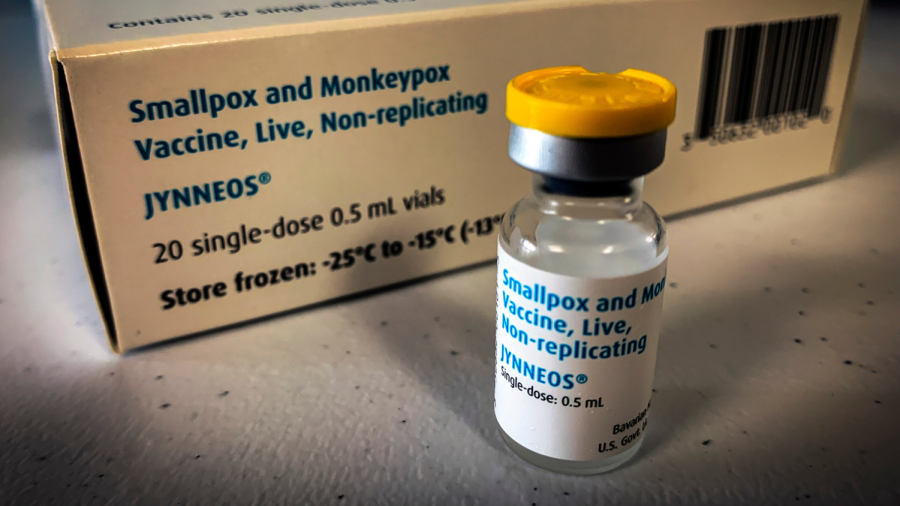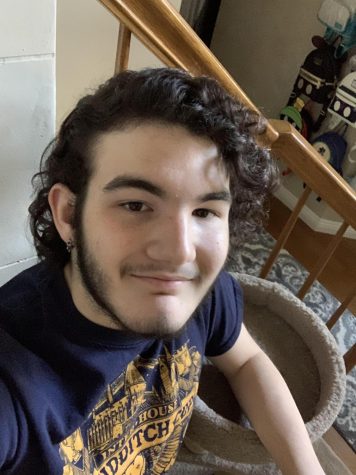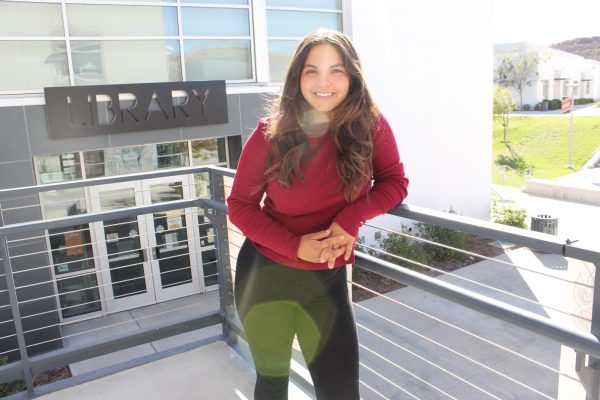Monkeypox: How is it Affecting our Society?
October 11, 2022
The COVID-19 pandemic has dramatically affected people worldwide. With the impacts of COVID still apparent in the nation and Los Angeles County, a new epidemic has begun to spread through the now weakened society. Monkeypox has spread through skin-to-skin contact and has immensely affected those within the LGBTQ community. A vaccine, JYNNEOS, has been created and approved by the FDA for people above 18 years old. One of the first traces of DNA that contained monkeypox in L.A. County was detected on July 31, 2022, and since then, 1,516 cases have been reported.
Monkeypox is a member of the orthopoxvirus genus in the family of poxviridae, along with smallpox, which monkeypox resembles significantly. Currently, there are no specific cures for monkeypox; however, patients with monkeypox are being treated with antiviral drugs similar to those used on smallpox, such as Tecovirimat (TPOXX).
Fevers, intense headaches, swollen lymph nodes, and back pain are prevalent symptoms of monkeypox. Monkeypox rashes can spread to the hand, feet, mouth, and genitalia, and contact with leccions, body fluids, respiratory droplets, and contaminated materials such as bedding are common ways of spreading monkeypox. However, most cases aren’t severe enough for extensive treatment after 2 to 4 weeks. The virus is, in most cases, not fatal, with only 3-6% of those reporting cases of monkeypox having died.
On Sept. 2, 2022, there was a count of how many citizens of L.A. county was affected by monkeypox. According to the L.A. County Department of public health, in males, there were 1,523 cases and only 12 cases in females. Transgender females saw 9 cases, while citizens who prefer not to share their identities contributed to 11 cases. Citizens aged 18-39 years have 1,068 cases, 40-59 years of age contribute 459 cases, and 31 patients were detected amongst those 60 years and older. In addition, 1,228 (79%) cases come from the LGBTQ+ community, and 60 come from straight citizens. Los Angeles has a total of 376 cases, South Bay & Harbor have 105 cases, San Fernando Valley has 21 cases, San Gabriel contributes 66 cases, and Antelope Valley has 21 cases. From decently healthy people, 976 cases have been reported, and people with poor health have recorded 555 cases.
According to the CDC, globally, 27 deaths have been reported out of the tens of thousands of cases, and containing it while we can is the best way to prevent further casualties. Asia has the most cases, with 24,098, and North America trails closely behind with 23,678 patients. South America has 9,049 cases, Australia has 126 reported cases, and Africa has 20 recent cases with 511 historically reported cases.
African scientists have expressed concern that this epidemic will be brushed aside until the virus directly impacts wealthier nations. However, this epidemic is hitting Africa the hardest, with 14 of the currently-reported 27 deaths in African countries. In addition, the vaccine used to treat smallpox stopped being used in 1970 as the disease became less common, and African doctors now realize how hard treating monkeypox is without the vaccine.
Many public officials have expressed their opinions on how monkeypox should be treated. Funding, vaccines, and procedures have all been considered during this epidemic. Scientists are now trying to figure out what the next step should be. President Biden submitted a request for 7 billion dollars for further research and development of treatments for the virus, rebuked by Senator Richard Burr, as he was concerned about how these funds were being spent. Senator Burr wrote a letter expressing his concerns about how the government wasn’t moving quickly enough to contain the virus. He points out how the U.S. just went through a demanding epidemic and that the current administration has not undergone adequate procedures to prevent things from getting out of control.
Right now, the only vaccine treatments are JYNNEOS and ACAM2000. However, treatments for smallpox are old and mostly forgotten, making it difficult to transition them into use against monkeypox. Doctors recommend washing hands and avoiding skin-to-skin contact with people with rashes. To learn more about treatment and vaccination options, check out The New York Times article about monkeypox.
Monkeypox is still a new and unexplored disease with no treatment options. However, taking the correct steps to prevent yourself and others from getting sick, getting vaccinated, washing your hands, and avoiding close contact with people who have monkeypox are a few straightforward steps to keep yourself safe.




